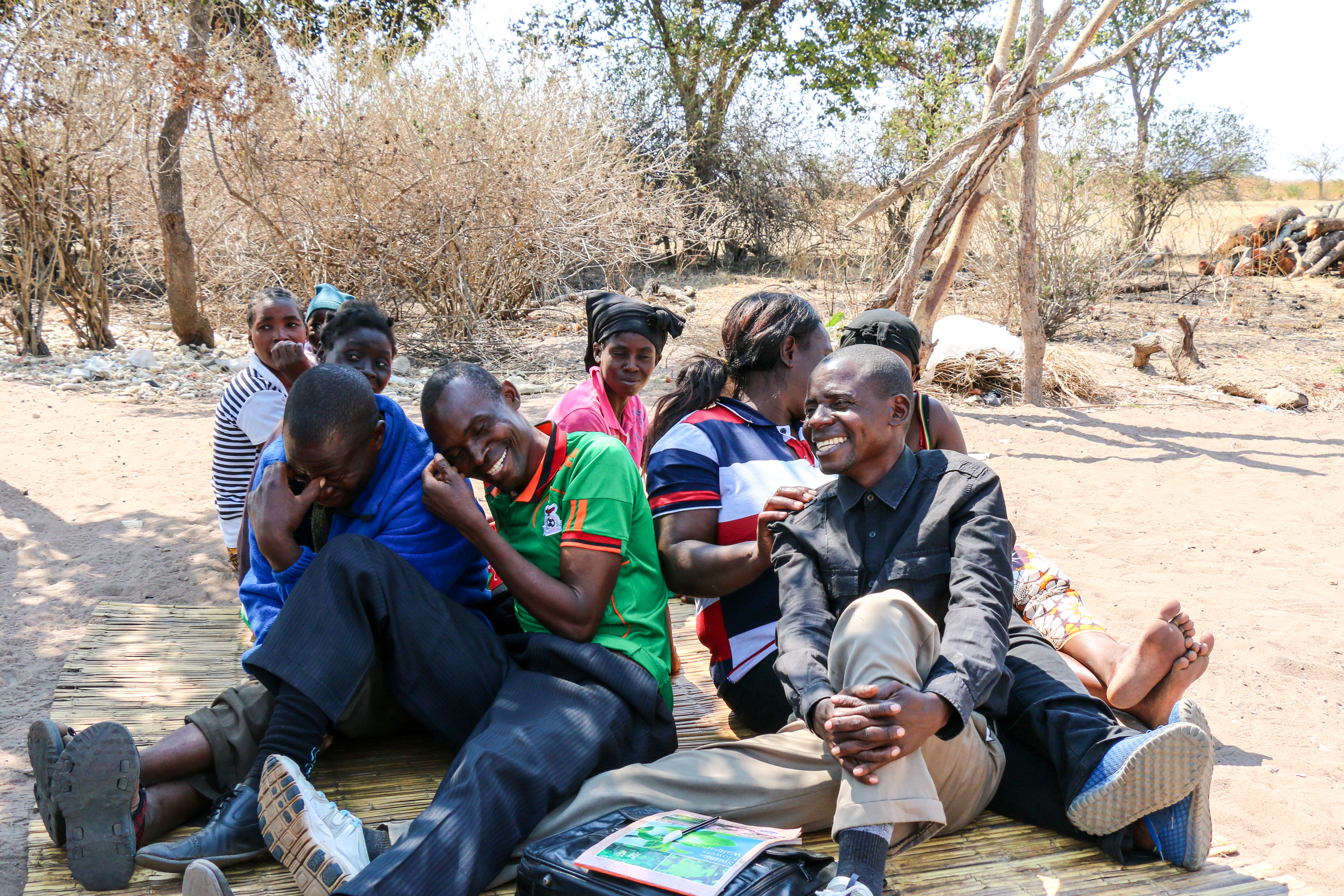
Our USAID-funded Feed the Future Production, Finance, and Improved Technology Plus (PROFIT+) project decreases poverty by linking smallholder farmers to markets and boosting their incomes. With PROFIT+ support, five Community-Agro Dealers (CAs) in the Kalichelo area of Zambia’s Eastern Province created agribusiness aggregation company JASADON Investment Limited in November 2015.
JASADON’s mission is to link farmers with markets. Its shareholders develop relationships with smallholder farmers from whom they purchase maize, sunflower, soybeans, and groundnuts and take them to market to sell. Previously, without the shareholders’ help, the farmers struggled with trade due to the long distance to Chipata— the region’s big city—and lack of local community markets.

PROFIT+ provided the company’s shareholders—three men and two women—a grant of 90,000 kwacha ($9,000 USD) after reviewing their business plan in which they highlighted the challenges community farmers face getting their crops to market. Additionally, each shareholder contributed 2,000 kwacha ($200) of his or her own money to start the company. Currently, 80 CAs in Chipata benefit from JASADON’s services, as do the smallholder farmers in the communities surrounding Chipata.
JASADON’s shareholders buy maize from farmers in Chikando, Kalemba, and Sanjika villages where each community provides free storage. They invest profits in a local bank, and at the end of the season, the shareholders sit down and distribute dividends. They also set aside funds to invest in additional equipment. On the land of one of the shareholders in Kalemba, they constructed a large facility to store maize. The company employs Sara Phiri, who received CA training from PROFIT+ in 2015, to handle the sale of maize at the Kalemba facility. Because farmers often struggle with transportation, the shareholders also use storage sheds in Chikando and Sanjika to make it easier for farmers in those communities to bring their maize to market.
PROFIT+-Trained CA Shares Knowledge with Others, Will Open Own Agribusiness
CA Sara Phiri is thankful to PROFIT+ for helping her increase her income.
Sara explains that “As a result of PROFIT+, I can sell more through what I learned in business trainings.”
Sara is scheduled to open her own agribusiness shop later in 2016. While she is excited about her success and future plans, she is also focused on the well-being of others in her community. When Sara meets with farmers, she talks to them about saving maize for consumption so that their families have enough to eat throughout the year, as maize is a Zambian staple.
After a successful first round purchasing maize, JASADON’s shareholders are currently on their second round. They are also buying groundnuts and sold all they acquired at a profit of 4,300 kwacha ($432 USD) to build the company’s Kalemba facility.

JASADON’s shareholders look to expand their business in 2017 and to continue giving back to the local communities. They hope to purchase their own truck to transport commodities for storage, making transactions easier for farmers. The shareholders also plan to purchase inputs for other CAs that the CAs can then buy at a reduced price. Currently, the company offers free farmer training at its three buying points and plans are afoot to build a clinic and a school.
Because JASADON’s shareholders have established a new market in Chikando, community members no longer have to travel several kilometers to sell their crops.
Shareholder Jackson Mthenthwa summarizes the shift in the community since engaging with PROFIT+: “Already the community is benefiting from the training from PROFIT+ because they’re offering free trainings for improved techniques and marketing. Now the market is here in the community. You used to travel four kilometers to take produce.”
In keeping with PROFIT+’s objectives, JASADON links farmers to markets, thereby decreasing poverty in Zambia’s Eastern Province.








